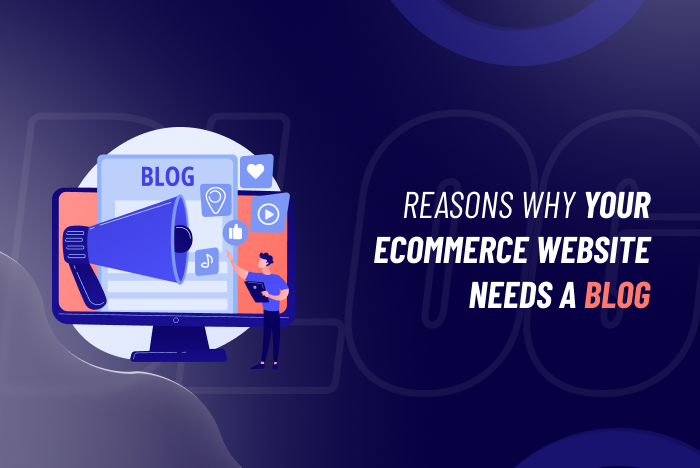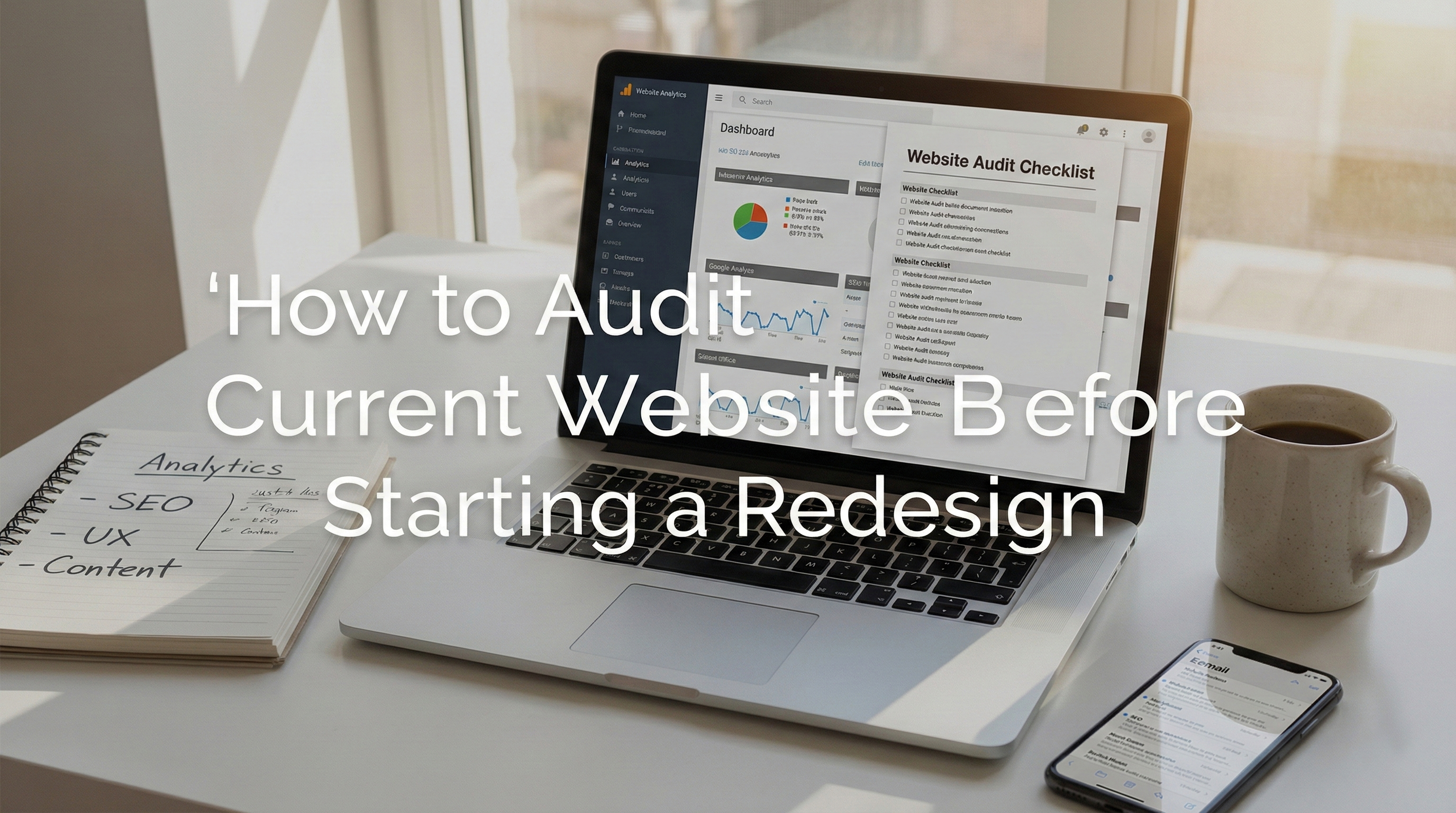Blogs are informal pieces created with the intention of demonstrating thought leadership and subject-matter expertise. They are an excellent approach to providing new material for websites and act as a spark for email marketing and social media promotion to increase search traffic.
If done correctly, content marketing and blogging are among the best ways for eCommerce firms to increase customer trust, foster brand loyalty and drive significant organic traffic in today's digital age.
Having a blog area on your website carries its own advantages when it comes to the growth of eCommerce websites. And today, we wish to inform you about such advantages through this article.
What is an eCommerce website?
A website that enables users to purchase and sell tangible items, services, and digital products online rather than in person. A company can process orders, receive payments, handle shipping and logistics, and offer customer care through an e-commerce website or an online store.
Daily living would be difficult without eCommerce. We make online purchases of food, clothing, and furniture, sign up for online courses and other services, download audio books, music, and movies, and do a whole lot more. eCommerce has established itself and will not go away.
Why Blogging is Important for an eCommerce Website
Increases Website Traffic
An excellent way to increase organic traffic to your eCommerce website and swiftly attract potential customers is by publishing blogs. Additionally, blogs are among the most economical ways to get natural traffic to your website.
A well-written and content-rich blog that is uploaded on your website will undoubtedly rise in the search engine rankings, bringing more organic traffic to it. Briefly put, blogs aid eCommerce businesses in fostering client interest, increasing traffic, and converting prospective leads into loyal patrons.
Take Shopify as an example; they increased their traffic via blogging. They saw a 55% increase in sales and earned $389 million thanks to the traffic. They presently hold the top spot for the 201,282 monthly searches for the keyword "drop shipping."
Promotes Brand Loyalty
Even if you offer the best goods or services, your likelihood of getting repeat business is going to be minimal if you do not develop brand loyalty. If your company operates entirely online or sells to customers all over the country or the world online, you need to figure out how to foster brand loyalty.
Even if it won't help you develop brand loyalty on its own, your blog is essential to the process. Your contributions will help to foster loyalty as long as they strike the right balance between being topical, professional, entertaining, and educational. Customers prefer to support companies that are related to something bigger than themselves, so don't forget to highlight this in your blog entries.
Enables you to interact and connect with your clients
Instead of having a website that your customers only visit when they want to make a purchase, you could use your blog to interact with them on a regular basis. Among the many options available, here are a few suggestions to get you started on the right track.
We all know that people visit eCommerce sites primarily to make purchases, so as an eCommerce firm, you need to break this cycle by using blogs as a vital tool to regularly engage your customers.
How do you do it? Here's an illustration. Let's say you offer your clients a weight-loss product. Now that you have a blog, you can share an encouraging client success story from when your company helped them lose weight. Create blog entries with images, videos, and customer interaction to connect with your audience right away.
Optimization for search engines
Your e-commerce website needs more traffic, so you should put some time and money into making that happen. One of the best free ways to do this is through a blog. The amount of material on your e-commerce website will significantly grow if you incorporate a blog. The more material you have, the more your website will be indexed and the more organic traffic your website will receive from potential customers. Use both of the trending keywords in your blog entries for the best results.
A location where you may share information about your brand and its accomplishmentsA blog is still a great location to give customers in-depth insights about your product and services, even if you have a well-developed email campaign in place to update them about your items (both current and upcoming) and make announcements about your brand. Blogs can be used for a variety of purposes, including responding to frequently asked questions from customers, seasonal promotions, press releases, and more.
Your new blog will be a great way for your customers to learn about your most recent news and developments, regardless of whether you use opt-in email marketing for your announcements or have a section on your eCommerce website where you publish announcements. This might be anything fresh about your business that you'd like to discuss, such as new items, answers to your most frequently asked questions, seasonal promotions, or anything else.
E-commerce blogs assist you in fostering brand loyalty and winning over customers
Blogging is, in essence, the best way for any internet brand, regardless of its scope or size, to build its brand. Here is a significant statistic to support your statement: According to the 2019 CMIs B2C study report, content marketing was the top choice of internet marketers to increase client loyalty (around 81% marketers agreed).
Accepting this fact, you need to publish blogs that are both educational and powerful in order to create brand loyalty and client trust in your e-commerce business.
Builds a community of your loyal fans online
By publishing blogs, you provide your consumers the opportunity to ask questions, post comments, and provide feedback on the goods they've bought from your platform, giving them a sense of belonging to a wider online community.
Therefore, be careful to post both regulatory and blog content, Answer frequently asked questions from customers by visiting the comment area. Additionally, you must reply to their private messages that arrive in your inbox.
You must include a share button when you offer an inspiring tale about one of your customers, a product, or a service in a blog post so that readers can simply share it on the social networking sites they commonly use.
You must include a share button when you offer an inspiring tale about one of your customers, a product, or a service in a blog post so that readers can simply share it on the social networking sites they commonly use.
Even if you didn't reach millions of customers, you still have the choice to post interesting and pertinent blogs to a bigger client base.
Supports your efforts to market on social media
Every blog post you write has a distinct URL that you can use in social media postings and link to in other online marketing campaigns. To increase the number of people who see your blog entries on social media, include "like" and "share" buttons.
Don't forget to include buttons linking to your social media profiles on your website and blog; doing so will help you gain more friends and followers.
Helps people find your website
The main reason you should write blogs is to increase traffic to your website. Each time you publish a blog entry, you add a new indexed page to your website, increasing your chances of being found by search engines and attracting visitors. Regularly producing material lets search engines like Google know that your website is being actively updated and should be routinely reviewed to see what fresh stuff has appeared.
Don't stop there after publishing a blog on your website! Make sure to share your blog on social media to promote it. This broadens the audience for your social media accounts, makes it easier for people to find your material, and directs new Internet traffic to your blog through those accounts. Additionally, it makes it easier for anyone who finds the content fascinating to share it on social media.
Blogs have a long life
Once a blog is listed in search engine results, it remains there for years, allowing it to continue to draw visitors and produce leads. Give your site time to create interest instead of aiming for immediate leads and thousands of views. Always write about themes you know will be of interest to your target audience because blogs with timeless topics will consistently attract more views each month.
Blogging gives your business a voice
You can post a blog to provide details about your company and its products as well as your views and opinions on particular subjects. Blogging is a terrific method to give your business a personality and make it more credible and approachable. Therefore, don't be afraid to discuss your interests on your blogs, offer your opinions on current events or business trends, or instruct your readers on a certain subject. Always keep your readership in mind when writing blogs.
It is an unrestricted marketing channel.
Your blog is a very powerful free marketing tool, regardless of how much money you have to spend on advertising. Even if you decide to pay to advertise certain of your blog entries, each one will continue to receive organic traffic. While the traffic some posts generate just requires a time investment from you to produce and post, others may stay relevant for months or even years.
Increasing your email list
Email lists, as we all know, are where the conversions are. Email lists remind your customers that you exist. Even though not everyone needs your goods right now, when they do, they will think of you first.
However, how can you get more people to join your email list?
A blog! You can encourage readers to join your emailing list by using your blog. If people enjoy reading your blog pieces, they'll assume that they'll enjoy reading your email newsletters as well.
Blogging has many advantages for businesses
Your website's traffic will rise, your blog's effectiveness will increase, and you'll get more leads.
But more than anything, blogging adds value to your reader, laying the groundwork for solid client relationships.
Humanize your company
Customers may forget that there are actual people on the other end of the line because so many firms attempt to present themselves in a professional manner online.
Here, smaller companies may have an advantage over more powerful rivals. If you run a small business, you can benefit from using blogging as the face of your business. By doing so, you'll foster trust and forge closer ties with your customers.
How do I build an eCommerce website?
Select your product
Make sure you are clear on your specialty before you begin. Better yet, it can be beneficial to think about what you can offer the market and start with an idea of the goods you want to sell.
Take your time and do some research once you've decided on a particular good or service. Start by researching rival companies in your sector. Pay close attention to what they're doing right and where you feel you can do better. Examine their website's operation, marketing strategies, and business model in great detail. Your own plan may be shaped by these observations.
Be sure to additionally take into account the likelihood of market saturation, the simplicity (or complexity) of entry into the market, and any particular demands your product might be able to address.
How do I build an eCommerce website?
Finding your target market comes after deciding what you want to sell. Think about your ideal customer and the traits they possess. Creating a consumer persona throughout this stage of the process may be beneficial.
A fictitious representation of your ideal consumer is known as a customer or buyer persona. You may forecast customer behaviour and gain a deeper understanding of your potential customers using this persona. When creating a character, you might wish to take age, geography, financial level, and personal goals or values into account. Whether you create elaborate personas or not, keeping these characteristics in mind will help you anticipate the online presence and marketing preferences of your actual customers.
Check your product
Before you can launch your brand, there are still a number of big obstacles to overcome, even if you have a clear understanding of your product and your target market. You must first decide if your concept will work in the real world of commerce. You should take into account both product-based factors like price point, markups, sales strategies, and laws as well as market-based criteria like market size, rivals, and industry trends.
You should have a clear grasp of the expenses you'll incur as a business owner after validating your product. Since you won't have to pay for a storefront or, in the case of digital products, warehouse and production costs, e-commerce sellers frequently have more pricing flexibility.
Organize your company
If your company sells actual goods, you'll need to develop a process for gathering, packing, and shipping orders. Your possibilities include, among others:
- Making the item yourself and taking care of the shipping expenses
- Having another company produce your product
- Reselling products purchased at a discount
- Working with a third-party inventory handler to drop-ship products
- supplying a digital good that does not require production or delivery
Select a name
Your online store needs a catchy name, if you don't already have one in mind. An excellent company name is unique, appealing, and descriptive. Verify that your company name is available on the websites of the U.S. Patent and Trademark Office and your secretary of state. As soon as you've decided, you should:
Make your domain name yours!
To properly register your business as an LLC, corporation, partnership, or sole proprietorship, speak with an attorney.
Utilize the IRS to request your employer identification number (EIN).
Obtain the essential business licenses and permissions, such as sales tax licenses, health and safety licenses, and others.
Create a website
It's finally time to design your e-commerce website once you've established your new firm. The creation of a professional website that captures the aesthetics and values of your new brand should be your aim. The fundamental steps in creating a website are;
- Purchase your domain first
- Choose the best Web developer and designer for your company
- Set up a payment gateway
- Optimize your content and services with SEO strategies
- Testing
- Launching
Create a marketing plan
Both before and after you launch, marketing is crucial to your store, so you should make sure you have an effective marketing plan to spread the word. so that people can easily recognize your brand. And this will be a square and profitable deal.
Why We need a blog for eCommerce Website
Blogging has many advantages for businesses. Your website's traffic will rise, your blog's effectiveness will increase, and you'll get more leads.
But more than anything, blogging adds value to your reader, laying the groundwork for solid client relationships.
Regardless of your marketing budget, a blog is overwhelmingly a highly successful form of free marketing. As a result, the sooner you start blogging, the more serious organic traffic you will receive from each individual blog post to your eCommerce website, which will raise your search engine ranking.










